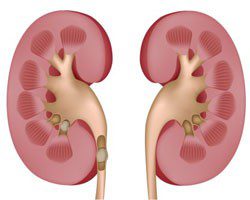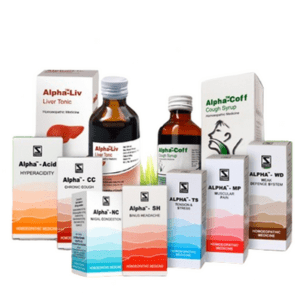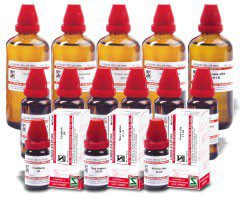Doctors Zone
Journal (JEBH)
Alpha™- Liv Drops
Alpha – Liv Drops Due to high demand from the market, for a formulation in drops for the liver, apart from the syrup already available in the market, Schwabe India developed this product. Introduction The liver plays a key role in metabolism. It has anabolic and catabolic, exocrine and endocrine functions. The liver is a blood reservoir, filter and store of different substances (e.g. glycogen, vitamins). It is the site of serum protein (e.g. albumin, prothrombin, fibrinogen) and enzyme synthesis. Metabolic processes (e.g. bilirubin, hormone, carbohydrate and lipid turnover) and the removal of toxic products are important liver functions. 1 Hepatotoxins (e.g. alcohol, tetracycline, acetaminophen, fungal toxins, and anabolic steroids) can cause specific damage to liver cells. Toxic hepatitis may be clinically silent or severe enough to lead to the rapid development of hepatic failure. Clinical features include hepatomegaly, enzyme abnormalities, fever, abdominal pain, anorexia, nausea, vomiting and weight loss. In patients with underlying cirrhosis, manifestations of portal hypertension may predominate. Aversion to fatty food, abdominal discomfort, nausea and vomiting after meals may be symptoms of 2 cholelithiasis. Jaundice results from accumulation of bilirubin. It has non-hepatic as well as hepatic causes. Hyperbilirubinaemia may be due to abnormalities in the 3 formation, transport, metabolism or excretion of bilirubin. TM Alpha -Liv Drops aids recovery and normalisation of liver functions. Severe liver disease needs specialised treatment. Indications: Slow liver functions, fatty liver, and for supportive treatment of hepatocellular jaundice and toxic liver damage.

Research news – Schwabe News Volume 1 | Issue 1 | October 2010
Schwabe News Volume 1 | Issue 1 | October 2010
Research news
Homoeoprophylaxis against Leptospirosis using a nosode: Large-scale application of highly-diluted bacteria for Leptospirosis epidemic control
Leptospirosis is a zoonotic disease of major importance in the tropics where the incidence peaks in rainy seasons. Natural disasters represent a big challenge to Leptospirosis prevention strategies especially in endemic regions. Vaccination is an effective option but of reduced effectiveness in emergency situations. Homoeoprophylactic interventions might help to control epidemics by using highly-diluted pathogens to induce protection in a short time scale. Researchers report the results of a very large-scale homoeoprophylaxis (HP) intervention against Leptospirosis in a dangerous epidemic situation in three provinces of Cuba in 2007. Forecast models were used to estimate possible trends of disease incidence. A homoeoprophylactic formulation was prepared from dilutions of four circulating strains of Leptospirosis. This formulation was administered orally to 2.3 million persons at high risk in an epidemic in a region affected by natural disasters. The data from surveillance were used to measure the impact of the intervention by comparing with historical trends and non-intervention regions. After the homoeoprophylactic intervention a significant decrease of the disease incidence was observed in the intervention regions. No such modifications were observed in non-intervention regions. In the intervention region the incidence of Leptospirosis fell below the historic median. This observation was independent of rainfall. It clearly indicates that the homoeoprophylactic approach was associated with a large reduction of disease incidence and control of the epidemic. The results suggest the use of HP as a feasible tool for epidemic control.
Reference:
- Natalia Marzoa, Jorge Menéndez, Luis García et al., Large-scale application of highly-diluted bacteria for Leptospirosis epidemic control, Homeopathy, Volume 99, Issue 3, July 2010, Pages 156-166
Disclaimer
The information provided herein is not intended to be taken as a replacement for medical advice and should not be used during any medical emergency. A Registered Medical Practitioner should be consulted for diagnosis and treatment of any and all medical conditions. Links to other sites are provided for information only and they do not constitute endorsements of those other sites.
You are subscribed to email updates from Schwabe India. To stop receiving these emails, you may unsubscribe now. If you have received this mail from your friend, you can directly subscribe now.
Recent Advancements in Basic Homeopathic Research – A Report on Two Significant Publication
In a study conducted at the Experimental Farm of the State University of Santa Catarina, Brazil, researchers investigated the impact of homeopathic treatments on piglets during the nursery phase. The study aimed to determine whether homeopathic agents could reduce fighting behavior, improve growth performance, and affect hematological, metabolic, and oxidative variables. The study included 108 weaned piglets divided into four groups: a negative control group receiving only the basal diet, and three groups receiving different homeopathic treatments at varying dosages.
Journal of Evidence Based Homeopathy Volume: 1, Issue: 1, January - June 2023
Comprehensive articles

Agrohomeopathy – A Review
Short cases

Unmasking the Intricacies: A Pyogenic Abscess Case Report

Lichen Simplex: A Singular Case Study

Ranula Unveiled: A Case Report and Management Approach

Lichen Simplex: A Singular Case Study

A Puzzling Presentation: A Case Report of Jaundice
Recent provings and updated materia medica

Acidum Formicum

Mygale

Thea Chinensis
Materia medica on phytohomeopathy

Chrysarobinum

Sanguinarinum nitricum

Thiosinaminum
Mother tincture

Asparagus Officinalis

Ginkgo Biloba

Rosmarinus Officinalis
Product watch

Alpha™- Liv Drops

Good Morning™ Constipation Drops

Zauber™ Hair Drops
Research News
























